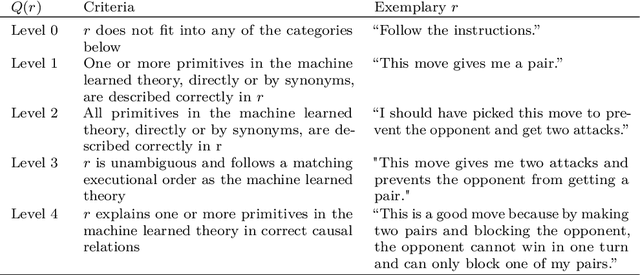Mark Gromowski
Beneficial and Harmful Explanatory Machine Learning
Sep 09, 2020



Abstract:Given the recent successes of Deep Learning in AI there has been increased interest in the role and need for explanations in machine learned theories. A distinct notion in this context is that of Michie's definition of Ultra-Strong Machine Learning (USML). USML is demonstrated by a measurable increase in human performance of a task following provision to the human of a symbolic machine learned theory for task performance. A recent paper demonstrates the beneficial effect of a machine learned logic theory for a classification task, yet no existing work has examined the potential harmfulness of machine's involvement in human learning. This paper investigates the explanatory effects of a machine learned theory in the context of simple two person games and proposes a framework for identifying the harmfulness of machine explanations based on the Cognitive Science literature. The approach involves a cognitive window consisting of two quantifiable bounds and it is supported by empirical evidence collected from human trials. Our quantitative and qualitative results indicate that human learning aided by a symbolic machine learned theory which satisfies a cognitive window has achieved significantly higher performance than human self learning. Results also demonstrate that human learning aided by a symbolic machine learned theory that fails to satisfy this window leads to significantly worse performance than unaided human learning.
 Add to Chrome
Add to Chrome Add to Firefox
Add to Firefox Add to Edge
Add to Edge